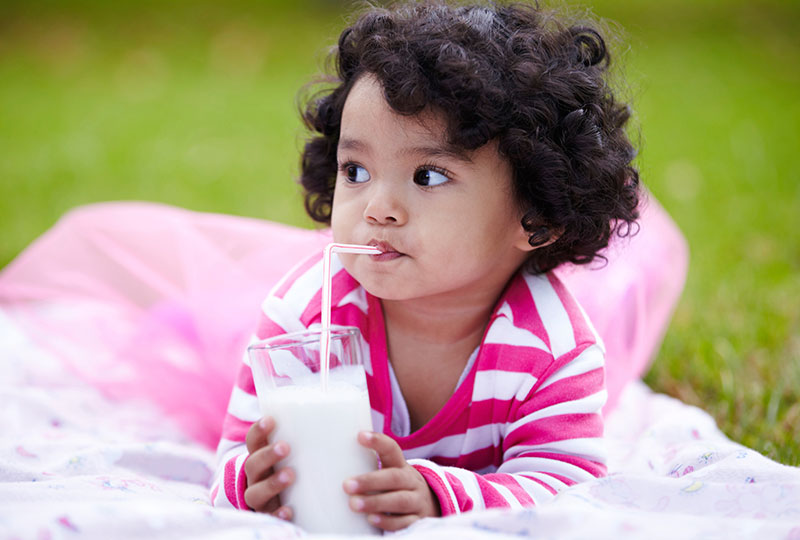Many servings of fruit juice contain a day’s worth of sugar.
That juice box isn’t necessarily a healthier alternative to a soda, according to new research. Nearly half of the “fruit drinks” tested in a recent study contained an entire day’s worth of a child’s recommended daily maximum sugar intake.
The study (performed at the University of Liverpool and published in BMJ Open) was conducted on fruit, juice and smoothie drinks marketed to children in the United Kingdom, but U.S. nutritionists say the results would be similar regarding stateside products.
“Beverage companies are trying to appeal to parents by marketing themselves as ‘healthy’ or ‘natural’ while still appealing to children who crave the sweet taste,” says Ryan Rafacz, R.D., LDN, a pediatric cardiology dietitian at the Monroe Carell Jr. Children’s Hospital at Vanderbilt. “Clever marketing often makes it easy to conceal the truth.”
Last year, the World Health Organization recommended that adults and children reduce daily “free sugar” consumption to less than 10 percent of total energy intake and suggested that consuming less than 5 percent is an even better goal. That’s about 25 grams (6 teaspoons).
The term “free sugar” refers to added sugars and those naturally present in honey, syrups, fruit juices and fruit juice concentrates. These guidelines do not refer to sugars in fresh fruits and vegetables or sugars naturally present in milk.
Free sugars can add up quickly in drinks, and just because a beverage label says the product contains a serving of fruit, does not mean it is a healthy choice. The serving often lacks the benefits of real fruit — such as fiber — and can include a lot of added fat and sugar, as in the case of smoothies.
“The McDonald’s Strawberry Banana Smoothie, for example,” Rafacz says, “contains four different kinds of fruit juice concentrate, added sugar, fructose and artificial flavors — totaling 40 grams of sugar in just 12 ounces.”
That’s well over the World Health Organization recommended daily intake. “The danger of eating a day’s worth of sugar in one sitting,” Rafacz says, “is that these kinds of beverages will often displace milk, water and even ‘real food’ intake. This can — combined with poor exercise habits — contribute to excessive calorie intake and the ongoing problem of obesity in children.”
When looking for a healthier “fruit drink,” parents need to keep it simple, Rafacz says. “The shorter the list of ingredients the better.” He suggests choosing ones with labels that say “100% fruit juice” and that do not list additives like high fructose corn syrup or even honey.
Better yet, stick to water, milk and milk alternatives. “If parents want to provide a fun alternative to soda or juice,” Rafacz says, “squeeze a couple of slices of lemon, orange or your child’s favorite fruit in water or unflavored carbonated water for a bubbly kick.”

